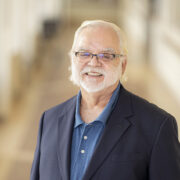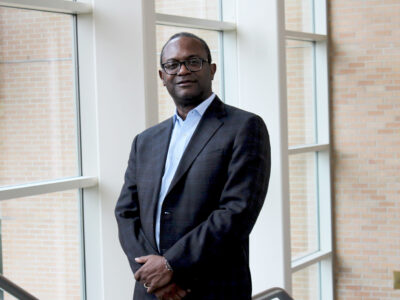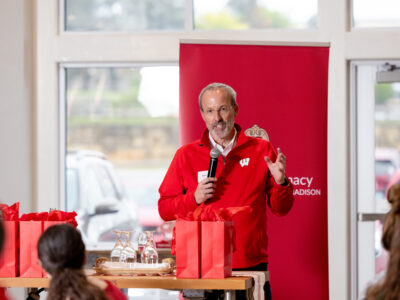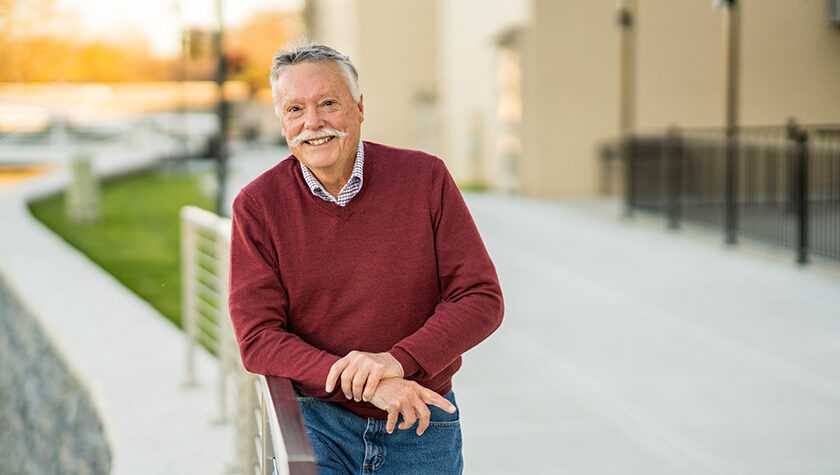
8
December

From public health to wildfires, Captain Thomas Blumenberg (BS ’74) served in the U.S. Public Health Service for 20 years
By Katie Ginder-Vogel
What does wrestling a 400-pound steer during a rodeo on the Fort Apache Reservation have in common with riding a rocking horse in front of the Cibecue Health Center in Cibecue, Ariz.? They’re both hallmark moments in the career of Captain Thomas Blumenberg (BS ’74).
He spent 20 years as a commissioned officer in the U.S. Public Health Service (USPHS), working closely with multiple Native American tribes, which often required earning their trust and participating in community events.
“As a pharmacist, I got out into the community,” he says. “Each tribal culture is different, so I paid close attention. I had to develop trust with people, and it didn’t always come easily, but when an Apache tribal leader said, ‘Da Tom is one of us,’ that meant they knew I could be trusted, and that was important to me.”
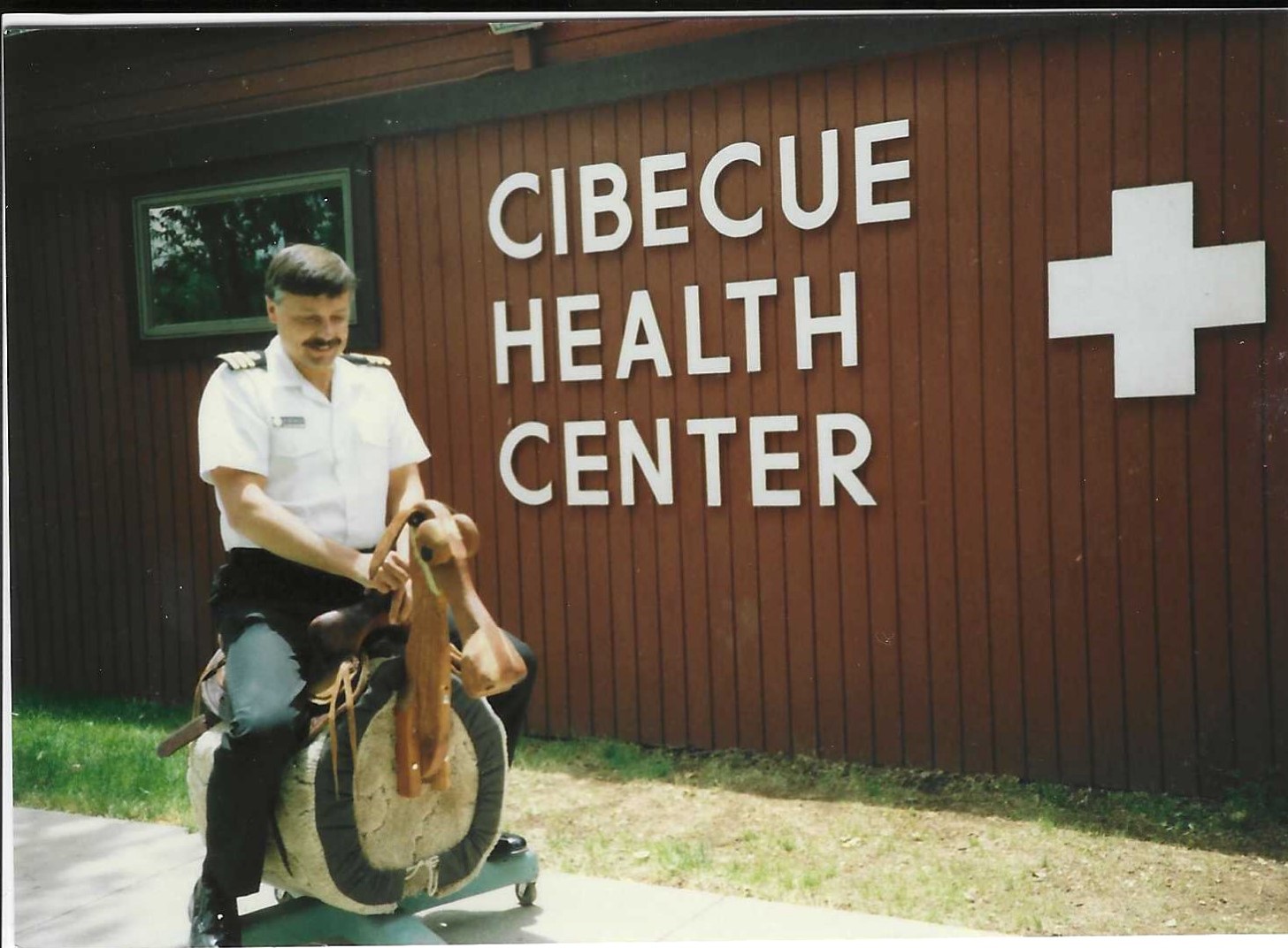
In Cibecue, that meant hopping on a rocking horse to show kids that clinics can be a fun and safe place.
“Instead of a rocking horse, we had a rocking exam horse to put kids on to help them relax,” he says. “I was in my uniform with three bars — I was a commander at the time — and I rode the rocking horse in front of the clinic.”
These were moments he could not have predicted when he began his varied career in pharmacy.
“I’ve made the most of opportunities that have taken me down different paths,” he says. “Pharmacy was always the foundation for my career, and it allowed for a lot of different things.”
A mission to serve
Blumenberg was born and raised in Port Washington, Wis., where he worked at Bowman’s Pharmacy in high school.
“I watched how the pharmacists approached their jobs, and I thought it was interesting,” Blumenberg recalls. “It was a small community pharmacy. People walked in, and the pharmacists knew them by name and knew their medical history. That’s what piqued my interest.”
A solid science student, Blumenberg’s interest caught the eye of the Bowman’s pharmacists, Everett Bowman (BS ’39) and Wayne Hoffman (BS ’52). Hoffman brought Blumenberg to orientation at the University of Wisconsin–Madison School of Pharmacy, which sealed the deal: Blumenberg earned his degree in pharmacy from the School of Pharmacy in 1974, a year after marrying his high school sweetheart, Sandra.
“Pharmacy was always the foundation for my career, and it allowed for a lot of different things.”
—Tom Blumenberg
Blumenberg’s first role after graduating from the School turned out to be pivotal, kicking off decades of service to Native American tribes. He spent five years at Medical Arts Pharmacy in Ashland, Wis., which was a contract pharmacy for the Indian Health Service. That’s where he met Captain Timothy Svoboda, the chief pharmacy officer for the Bemidji, Minn., Area Indian Health Service, who shared his experience with the IHS, which inspired Blumenberg to look into public health opportunities, including the U.S. Public Health Service. That led to Blumenberg becoming a tribal-hired pharmacist for the Menominee Indian Tribe.
“I liked small clinic community pharmacy,” Blumenberg says. “I had never met any Native Americans before my time at Medical Arts Pharmacy, and I appreciated their unique perspectives. The Menominee Nation had an opening, and that was a way to get my foot in the door in public health.”
Climbing the USPHS ranks
In 1983, Blumenberg started the application process to become an officer in the U.S. Public Health Service (USPHS), one of the country’s eight uniformed services. USPHS, a collection of agencies of the Department of Health and Human Services, is dedicated to promoting, protecting, and advancing the health and safety of the nation — a mission well in line with Blumenberg’s own.
With his educational and professional experience, Blumenberg was accepted as a Commissioned Officer and took the Oath of Office, continuing his work at the Menominee Tribal Clinic in Keshena, Wis.
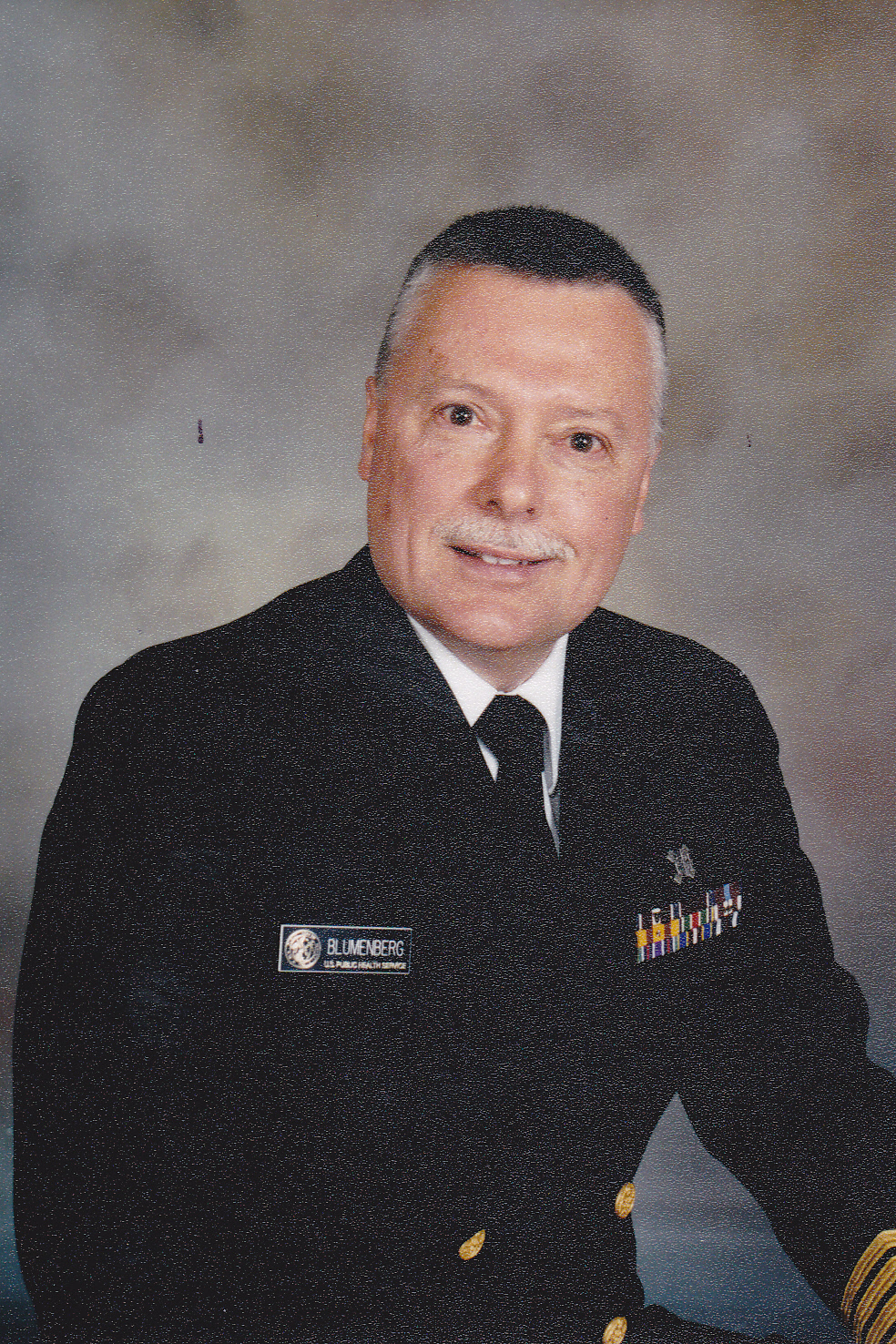
Through his training and work at the tribal clinic, he developed an interest in population health and decided to pursue his master’s degree in public health.
“I matriculated at the Uniformed Services University in Bethesda, Md., in 1985, to get my master’s,” he says. “I completed the intense program in one year and went back to service, this time in the Navajo Nation, in Chinle, Ariz.”
As a clinical pharmacist at the Chinle Comprehensive Care Facility, Blumenberg combined his pharmacy and public health knowledge. Eager to increase his professional focus on public health, his next role was as a Facility Unit Director (FUD) at the Cibecue Health Center in Cibecue, Ariz., a small outpatient clinic about 50 miles from the Whiteriver IHS Hospital.
Blumenberg had oversight of the medical, nursing, dental, community health nursing, behavioral health, and social services departments, coordinating regulatory and credentialing groups to ensure the facility was adhering to Joint Commission requirements. He also supervised the administrative, laboratory, radiology, facilities management, transportation, and medical records teams, comprising direct tribal hires, civil servants, and commissioned officers. On top of that, he managed all pharmacy operations and worked with administrative personnel to address budget, personnel, facilities management, and procurement procedures.
“It was a small community, and as a commissioned officer and pharmacist, I had so many responsibilities that it burned me out a bit. They replaced me with two people,” he says. “When I left, the tribal chairman, who was from the community, came and did three drums and three songs for me and said, ‘You’ll be back.’ Two years later, I was back on the reservation, but as a pharmacist at the Whiteriver Indian Hospital.”
In the two years away, he served at the Blackfeet Community Hospital in Browning, Mont., and after returning to Arizona, he eventually moved into quality assurance and safety management.
“I became the coordinator of TERC, the Tribal Emergency Response Commission, organizing public works, the fire department, the airport, and the schools, and that got me into emergency preparedness,” Blumenberg says. “I received specific training with the National Disaster Medical System, through the Commissioned Corps Readiness Force. I earned my field medical readiness badge. I was going down a new track, still using my pharmacy training.”

In 1999, while stationed at the Whiteriver Indian Hospital, Blumenberg had to call on his emergency response training: A forest fire broke out just a half-mile from the facility. As the flames crept closer to the hospital and 3,500 residents of the Fort Apache Reservation were evacuated, the emergency room’s services remained critical.
As the 45-bed hospital’s safety officer, Blumenberg closely assessed the danger the constantly shifting fire posed to the facility and prepared for a possible evacuation. With walls of flames just 200 yards from the hospital, the evacuation order was given, and Blumenberg quickly worked with the clinical director, service unit director, and fire management to orchestrate the evacuation of the hospital and all government quarters.
With the patients escorted to safety, he was one of few staff members remaining at the hospital to keep the crucial emergency room open. Blumenberg made dozens of dangerous trips across fire barricades to coordinate disaster support efforts, and through his negotiations, critical utilities were restored or maintained to keep clinical services functioning.
“Working 12–14-hour days with minimal rest, Capt. Blumenberg maintained an atmosphere of calmness, confidence, and organization that inspired his fellow officers to maximize their own efforts,” his colleagues wrote.
For his successful efforts to keep the hospital out of harm’s way and keep essential services running, Blumenberg was awarded the Meritorious Service Medal with Valor, the second-highest award in the Public Health Service.
“Every step in my journey I was fortunate to have support and encouragement from my wife, fellow officers, and the individuals and tribes that I served,” he says.
Documenting history
Blumenberg retired from USPHS as a captain in 2004 and started Blumenberg Consulting, LLC, which provided direct pharmacy services to the Hayward Area Memorial Hospital pharmacy, the Northern Lakes Co-op pharmacy, and the Stockbridge-Munsee Tribal Health Clinic.
“I was the training and education coordinator for the Northern Lights Public Health Consortium,” Blumenberg says. “This consortium focused on emergency preparedness and response, enabling the health care delivery systems to deal with disaster events that exceed normal capacity. For a short time, I contracted with the Wisconsin Department of Health and Human Services and was involved with the Strategic National Stockpile, emergency preparedness and training.”
“So few people serve in the military or uniformed services — less than 1 percent of the population — that the general public knows little about life in uniform and service to our country.”
—Tom Blumenberg
Now, Blumenberg works as a volunteer interviewer and writer, telling the stories of veterans. He contributes stories to the Library of Congress’s Veterans History Project — which collected an interview with Blumenberg himself in 2016 — the Wisconsin Veterans Museum, and local newspapers. He has interviewed and written about 33 veterans since 2015, earning him a 2018 feature in the Sawyer County Record. In 2021, he received a Quilt of Valor at the Hayward High School Veterans Day concert, in recognition of his contributions in documenting veterans’ history. He has also provided financial support to the documentary The Invisible Corps, which tells the story of the U.S. Public Health Service Commissioned Corps, and he gives presentations about his career locally.
“So few people serve in the military or uniformed services — less than 1 percent of the population — that the general public knows little about life in uniform and service to our country,” Blumenberg says. “Because I served in uniform, that opened doors, and I got incredible interviews. In some cases, people’s families had never even heard stories that were given to me. It’s so fulfilling to me to get these stories heard.”


